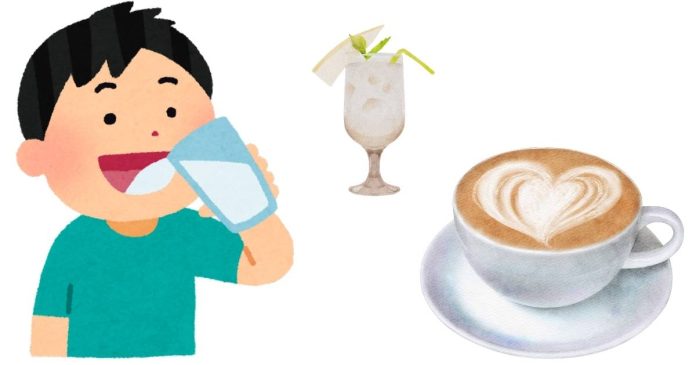Coffee generally has more caffeine than Mountain Dew.
- Coffee: An 8-ounce (240 mL) cup of brewed coffee contains roughly 95 milligrams of caffeine on average, though it can range from 70 to 140 mg depending on factors like the brewing method and the type of coffee bean.
- Mountain Dew: A 12-ounce (355 mL) can of Mountain Dew contains about 54 milligrams of caffeine.
So, in comparison, coffee typically has more than twice the amount of caffeine per serving than Mountain Dew.
Coffee generally has more caffeine than Mountain Dew.
- Coffee: An 8-ounce (240 mL) cup of brewed coffee contains roughly 95 milligrams of caffeine on average, though it can range from 70 to 140 mg depending on factors like the brewing method and the type of coffee bean.
- Mountain Dew: A 12-ounce (355 mL) can of Mountain Dew contains about 54 milligrams of caffeine.
So, in comparison, coffee typically has more than twice the amount of caffeine per serving than Mountain Dew.
Let’s dive a little deeper into the caffeine content of both beverages and the factors at play.
Caffeine in Coffee
Caffeine is naturally present in coffee beans, which are the seeds of coffee cherries. The amount of caffeine in a cup of coffee can vary due to several factors:
- Brew Method: The way coffee is brewed significantly affects how much caffeine ends up in your cup. For example:
- Drip coffee (brewed using a coffee machine) typically contains around 95 milligrams of caffeine per 8-ounce (240 mL) cup.
- Espresso has more concentrated caffeine, with a typical shot (1 ounce or 30 mL) containing about 63 milligrams of caffeine. However, you generally drink a larger volume of brewed coffee than espresso, so the total caffeine content is higher in a regular cup of coffee.
- French press, cold brew, and other methods can have varying amounts as well, but in general, coffee has more caffeine than most other common beverages.
- Coffee Bean Type: Different types of coffee beans also contain different levels of caffeine. Arabica beans (common in many specialty coffees) tend to have less caffeine compared to Robusta beans, which are often found in more affordable or instant coffees.
- Serving Size: Coffee servings can range from a small 6-ounce cup to a large 16-ounce (or more) “grande” size at coffee shops, which can significantly increase the total caffeine intake. For example, a “grande” Starbucks coffee can contain upwards of 200 milligrams of caffeine or more.
Caffeine in Mountain Dew
Mountain Dew is a citrus-flavored soda that contains caffeine, but the amount is much lower than what you’d find in coffee. Here’s a breakdown:
- Amount of Caffeine: A 12-ounce (355 mL) can of Mountain Dew contains about 54 milligrams of caffeine. This is about half the caffeine of a typical cup of coffee (which is around 95 milligrams in an 8-ounce serving).
- Comparison to Other Sodas: Mountain Dew has more caffeine than many other soft drinks, such as Coca-Cola (which has about 34 milligrams per 12 ounces), but still significantly less than coffee or energy drinks like Red Bull.
- Flavor Profile: The caffeine in Mountain Dew comes from the inclusion of ingredients like caffeine citrate or naturally occurring caffeine from the kola nut (though the latter is less common in modern sodas). However, since soda also contains sugar and various flavorings, the stimulant effects may feel less intense compared to coffee.
Key Differences in Caffeine Levels
- Caffeine Content:
- Coffee (8 ounces): ~95 milligrams
- Mountain Dew (12 ounces): ~54 milligrams
So, a cup of coffee typically has more caffeine than a can of Mountain Dew, despite the soda being more concentrated in terms of volume.
- Effect on the Body:
- Coffee’s higher caffeine content means it can have a stronger stimulant effect. It might help improve focus, alertness, and energy levels more noticeably.
- Mountain Dew, with its lower caffeine, provides a milder boost, which may be more gradual or less noticeable depending on the person’s sensitivity to caffeine.
- Other Factors in the Drink:
- Coffee: In addition to caffeine, coffee contains other compounds like chlorogenic acids, which have potential health benefits, though they can also contribute to a bitter taste. Coffee is also virtually calorie-free unless cream, sugar, or flavorings are added.
- Mountain Dew: This soda contains a significant amount of sugar (about 46 grams per 12-ounce can), which can give a quick energy spike but also lead to an eventual crash. The sugar and acidity can also cause discomfort for some people, especially when consumed in large quantities.
Why is Coffee Stronger in Caffeine?
Coffee is generally more potent because:
- The brewing process extracts caffeine from the coffee grounds, creating a more concentrated solution compared to a soda, where caffeine is just one component in a mix of ingredients like sugar, water, and flavorings.
- Coffee’s primary purpose is as a beverage to stimulate, and its entire preparation is designed to maximize caffeine content. Mountain Dew, while caffeinated, is marketed as a refreshing soda rather than a stimulant drink, so its caffeine level is lower.
Conclusion
If you’re looking for a stronger caffeine hit, coffee is the better choice. A cup of coffee can have more than twice the amount of caffeine as a can of Mountain Dew. However, if you prefer something sweeter or are just looking for a mild pick-me-up, Mountain Dew might suit your needs better, though it may also come with more sugar and fewer long-term benefits in terms of alertness.


